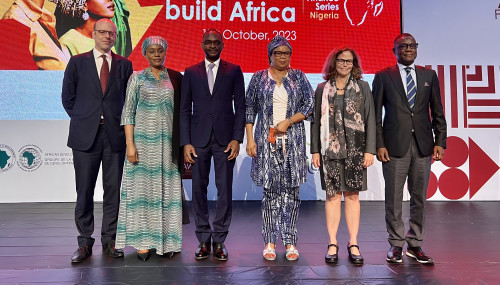The African Development Bank Group (AfDB) and the African Guarantee Fund forum kicked off on Wednesday, October 18, with the two organizations’ boosting women with access to $2 billion in finances for start-ups.
The two institutions opened the AFAWA Finance Series Nigeria, with part of the African Development Bank’s Affirmative Finance Action for Women in Africa (AFAWA).
“The topic of women’s empowerment is one that demands our attention, our commitment, and our collective efforts to ensure that women have equal opportunities so as to fully participate in our nation’s economic growth,” Grace Ogbonna, Director for Economic Research and Policy Management in the Ministry of Finance stated.
The series of events brings together representatives of government, policymakers and financial institutions for an introduction to AFAWA’s partnership services for the Nigerian market.
The AFAWA Finance Series (AFS) is a component of the AfDB’s initiative that brings together government representatives, policy makers and financial institution leaders to offer an introduction to AFAWA’s partnership services for the Nigerian market.
Some of the representatives of AFAWA donor countries, include the Netherlands, France and Italy who also took part in the opening ceremony.
Also Read: AfDB, JICA Unleash $350M to boost Africa’s Private Sector
“The topic of women’s empowerment is one that demands our attention, our commitment, and our collective efforts to ensure that women have equal opportunities so as to fully participate in our nation’s economic growth,” Grace Ogbonna, Director for Economic Research and Policy Management in the Ministry of Finance stated
AfDB Affirmative Action Partnership
The partners in 2021 established this risk sharing facility to unlock up to $2 billion in financing for women-led small and medium enterprises in Africa through financial institutions.
African Guarantee Fund CEO, Jules Ngankam, said, “In Africa, 70% of women are excluded financially, including in the areas of access to credit, land ownership, job opportunities, leadership positions and wealth creation. These imbalances have been one of the factors limiting Africa from reaching its full potential.”
He further commended the Nigerian government for promoting women-led small and medium enterprises and noted that through AFAWA, the Fund is eager to collaborate with the government and policy makers to further enhance the business environment for women entrepreneurs.
The Finance Series also provides training that will enable financial institutions to evaluate their products and services through a gender-smart lens to better address the needs of women entrepreneurs.
Currently, AFAWA and the AfDB are changing the narrative about women entrepreneurship by confirming full support for AFAWA related activities
Affirmative Action Initiatives
AFAWA’s approach challenges the gender gap in access to finance and liberates women’s entrepreneurial capacity in Africa.
Currently, the African continent has the highest percentage of women entrepreneurs in the world.
According to the Global Entrepreneurship Monitor (GEM) 2016/17 Women’s Report, the female entrepreneurship rate in sub-Saharan Africa is 25.9% of the female adult population, meaning that one in four women starts or manages a business.
AFAWA finance leverages the African Development Bank’s financial instruments and has two innovative solutions to drastically transform the banking and financial landscape in Africa and to create incentives for lending to women in business.
AFAWA provides an enabling environment that engages with African governments and other key stakeholders to support legal, policy and regulatory reforms and strike down the structural barriers impeding women in business.
Also Read: North Africa Economic Outlook: AfDB Projects 4.6% Growth, Roots for Green Development
The partners in 2021 established this risk sharing facility to unlock up to $2 billion in financing for women-led small and medium enterprises in Africa through financial institutions.
African Guarantee Fund CEO, Jules Ngankam, said, “In Africa, 70% of women are excluded financially, including in the areas of access to credit, land ownership, job opportunities, leadership positions and wealth creation. These imbalances have been one of the factors limiting Africa from reaching its full potential.
The Finance Series also provides training that will enable financial institutions to evaluate their products and services through a gender-smart lens to better address the needs of women entrepreneurs.

